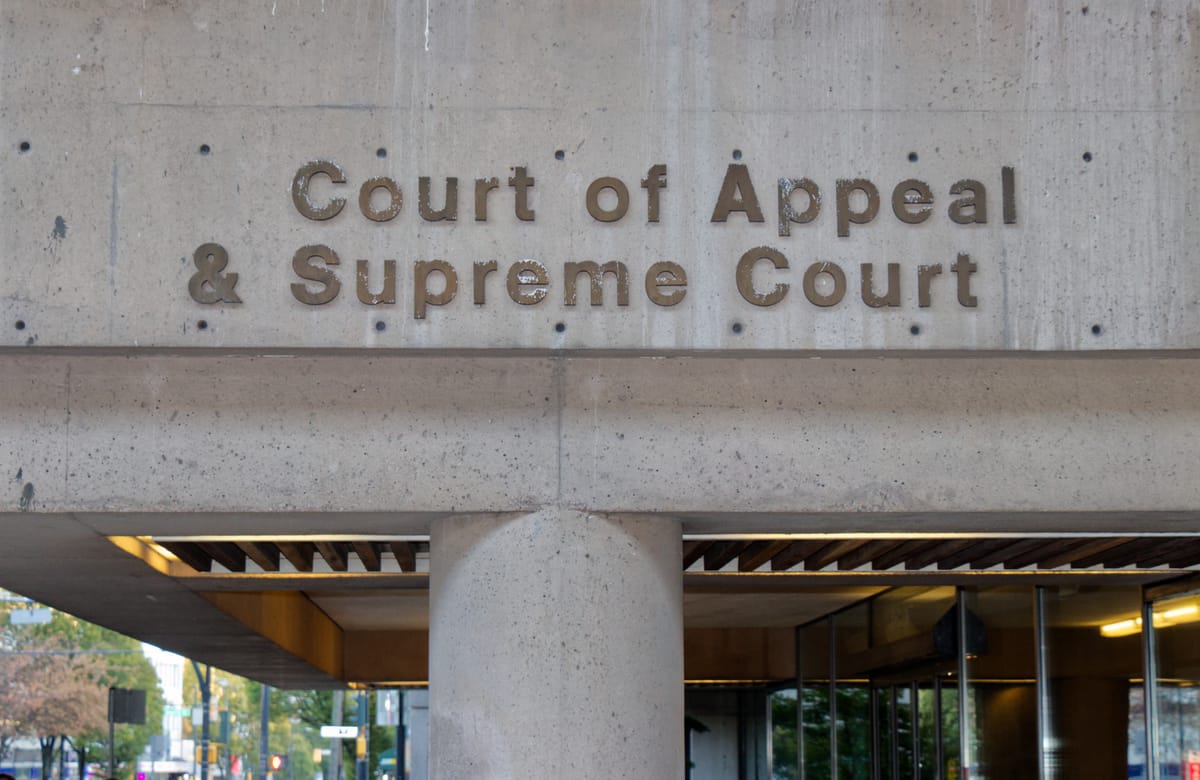What most trial lawyers get wrong about appeals
Plus: Gen Z doesn't want your job

A lot has changed since legal marketing was legalized, but too many marketing firms still don’t understand how to advertise legal services. As attorneys, we know that the same tactics used to sell shoes aren’t bringing feet to our doors, but we don’t always know how to communicate that to our marketing team.
This edition of Raise the Bar addresses that problem by highlighting a podcast that explains the disconnect between traditional marketing tactics and what law firms need, and showcasing an article that gives you the vocabulary you need to push for useful info from your marketing team.
Plus we’ve got a rundown on cameras in courtrooms, info on how to manage Gen Z, and a conversation with an appellate attorney who claims your brief is far more important than anything you may say in oral arguments.
Enjoying this newsletter? Share it with a friend (or copy this link)

Cleveland cold case heats up. Did this divorce attorney murder his client?
Overwhelmed with old files? At least you don’t have 80 boxes of Nazi propaganda in your basement.
Peep the comments. Turns out attorneys aren’t the only ones clamoring for open access to court records.
Will Slaughter and Kill. And this is why Avi Weiss should be consulted on all firm mergers.
It’s listening. Wearable tech makes recording everything all too easy.

This appellate attorney has the 'write' stuff
Behind every reversal lies a brief that made its way through the noise—clear, precise and quietly persuasive. But who writes with that kind of power? Lawyer Christopher Keleher does, and he’s sharing his tips for crafting winning appeals with Raise the Bar. -Emily Kelchen
Let’s cut right to the chase. What’s the secret to winning over a panel of judges?
The $64,000 question. I like to think it is a mix of things, which I would describe as "flow." A brief that flows is pithy yet persuasive. Ultimately, it should be something that is easy (and dare I say a joy) to read for an audience that is burdened with dozens of other briefs, countless motions and numerous draft opinions vying for their attention.
So it’s the brief, not oral argument, that’s most important when you are appealing a case?
It’s important to do both well. However, I place much more importance on the writing. I don't like to burst bubbles, my own or anyone else's, but an oral argument, no matter how superb, will not save a subpar effort on the writing front. So I definitely work harder on honing my writing skills. An excellent brief can save a lackluster oral argument, but the reverse is almost never true.
What tactics do you use to craft a compelling appellate brief?
I try and humanize my client. Virtually all of my clients, whether civil or criminal, are individuals, so my job is a bit easier in that regard. I try to convey the motivations and needs my client faced at the time the operative facts transpired. Lawyers and judges can get lost in statutes, precedent, and legal arguments, overlooking that they are dealing with real people with real life problems. So I try and take a step back and offer the reader a holistic view of the litigants and the facts while also giving the court the tools it needs to reverse, whether that be rule, precedent or fact-based.
How do you decide which issues to raise on appeal and which to drop?
I take a minimalist approach to appeals. I rarely include more than three issues on appeal. On criminal cases, I am more willing to be inclusive, but even there, I have to really convince myself to include more, rather than less. The scattershot approach on appeal is usually doomed to fail.
What do you wish more trial lawyers understood about appeals?
The appellate court is not the 13th juror. Cases are by and large won at trial, and going to the appellate court is not a "do-over" or a second chance. The odds are severely stacked against the appellant and the time investment for an appellate attorney is significant. But perhaps most attorneys know all this, and the real issue is figuring out how to tell a client it’s time to drop their Supreme Court illusions and move on.


The Billable Hour Boot Camp: A must-watch for time-strapped legal pros
Want to make your billable time entries faster, clearer, and easier to defend? In this five-minute video, Ann Pearson—founder of The Billable Hour Boot Camp and longtime trainer to firms across the country—shares one simple tactic that helps legal professionals streamline their timekeeping without sacrificing accuracy.
It’s a quick win with long-term payoff, especially for attorneys and paralegals juggling heavy caseloads and tight deadlines. Watch the episode here.

Gen Z Is opting out of leadership roles
Gen Z will make up 30% of the workforce by 2030, according to the Bureau of Labor Statistics. So it is time for firms to start thinking about getting them in the leadership pipeline. The problem is these workers are becoming known for actively avoiding management roles to protect their work-life balance—a trend dubbed “conscious unbossing.” Experts say Gen Z isn’t lazy or unmotivated; they’re skeptical of burnout and question outdated leadership norms.
Why this matters: Firms that figure out how to navigate this shift in workplace culture will have a competitive edge when recruiting and retaining top young talent. Those that don’t may soon find themselves without anyone willing to step into leadership roles. (Business Insider)

Is SCOTUS ready for its close-up?
The debate over cameras in the Supreme Court is raging again, with C-SPAN petitioning the Court to offer more than its typical audio stream of the May 15 arguments over birthright citizenship. The Court—of course—said no. But many other courts across the country are saying yes to video coverage. The Radio Television Digital News Association actually has a state-by-state guide to laws and policies governing cameras in the courtroom that includes links to available video archives and live-streams.
Why this matters: SCOTUS’s decision to keep providing a live audio stream of oral arguments even after the end of COVID protocols—and the flush heard round the world—was a baby step toward more media access to the Court. The RTDNA database is a great way to keep track of what other courts are doing in this respect. (Radio Television Digital News Association)

One size does not fit all when it comes to legal marketing
If you are starting to question the work your outside marketers are doing, it’s time to add the latest episode of the "Latina Legal Minds" podcast to your queue. Host and attorney Kimberly Lopez goes in-depth with Margarita Eberline—who has worked everywhere from Nielsen and Telemundo to her own marketing firm—on why marketers push clients into cookie-cutter solutions, and why that doesn’t work for attorneys.
Why this matters: Eberline doesn’t just talk about what doesn’t work. She outlines how you can use marketing to build trust and really connect with your target clients. And this dovetails into the theme of the whole Latina Legal Minds podcast of leaning in to who you are and showcasing your lived experiences instead of hiding them. (Latina Legal Minds)

- AI takes the stand at sentencing
- Changes to the nomination process are the late Justice Souter’s lasting legacy
- Shake-up at copyright office another hint that IP law is in a state of flux
- Relatively unknown Court of International Trade will decide fate of “Liberation Day” tariffs
- Bankruptcy courts prepare for onslaught of student loan driven cases

Cut through the marketing mumbo jumbo
This article from Chip LaFleur reads like a marketing-for-normal-people dictionary. It can help you make sense of all the terms your marketing team is throwing around—like impressions, bounce rate and conversions—while also helping you figure out how to actually measure the success of your marketing efforts. It also has a cheat sheet with the four key questions you need to ask when “cross-examining” a marketing report.
Why this matters: Modern marketing is all about metrics, but if you don’t understand what’s being measured, you can’t judge how well it's working. Learning what questions to ask so you know what’s actually going on is critical, especially if you outsource the majority of your marketing. (Attorney At Work)
Thank you for reading Raise The Bar.
Every Thursday, you'll hear from our team about the most pressing issues facing legal practices today. We'll also try to include some quick-hit reads that touch on interesting cases and precedents being set worldwide.
Have anything you'd like us to cover? Send an email raisethebar@mynewsletter.co
Raise the Bar is curated and written by Emily Kelchen and edited by Bianca Prieto.




Comments ()